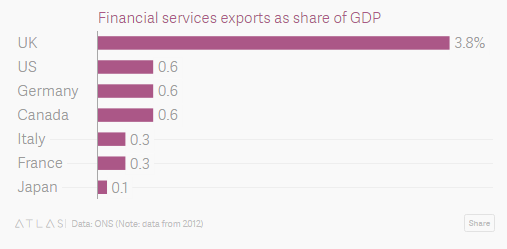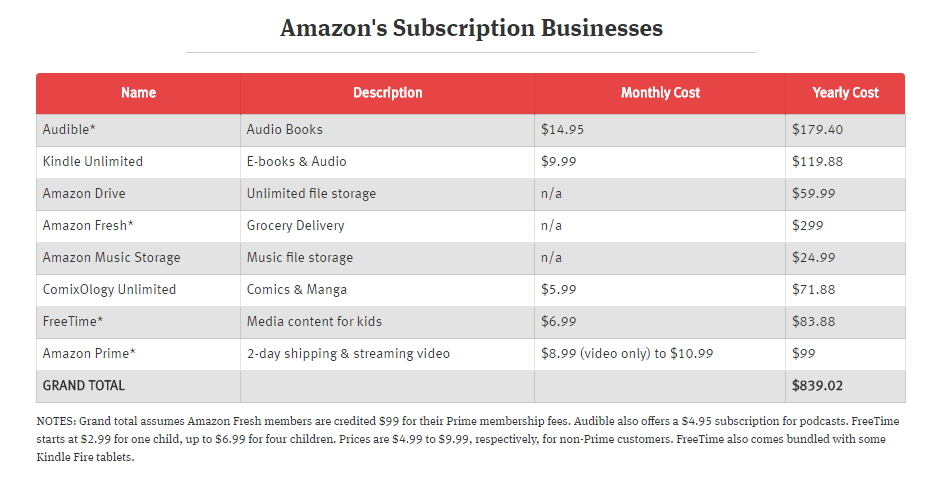Sections
Technology, Truth and Conflict
[avatar user=”malm” size=”small” align=”left” link=”file” /]
Winston: Does the Brotherhood exist?
O’Brien: That, Winston, you will never know. If we choose to set you free when we have finished with you, and if you live to be ninety years old, still you will never learn whether the answer to that question is Yes or No. As long as you live it will be an unsolved riddle in your mind.
– 1984, George Orwell
Katherine Viner published an excellent article explaining how digital technology, especially social media, has disrupted the inconvenient business of seeking to publish the truth. It has become easier, cheaper and frequently more beneficial to post information that may not be true but can be shared as if it is in order to solicit as much attention as possible. It’s appropriate that the article was published in the Guardian, one of the few bastions of broadly objective journalism still left. With the daily news cycle ever darker and menacing through a relentlessly grim 2016, it is more important than ever that we all understand that we need to adopt a skeptical approach to rumour purporting to be fact:
we are in the midst of a fundamental change in the values of journalism – a consumerist shift. Instead of strengthening social bonds, or creating an informed public, or the idea of news as a civic good, a democratic necessity, it creates gangs, which spread instant falsehoods that fit their views, reinforcing each other’s beliefs, driving each other deeper into shared opinions, rather than established facts.
Technology is also implicated in this Vanity Fair article asking if we stand at the precipice of a world war driven by technology. Specifically again digital technology in the form of devastating viruses that could cause mass scale damage to vital infrastructure. It’s sobering to reflect that the First World War started just over a hundred years ago with a single shot that changed the world. Maybe the next will be started with a single line of code:
Technology is also likely to be at the center of the next major geopolitical battle. The anti-immigration, anti-one percent, anti-capitalism and anti-everything else we’re seeing right now isn’t just going to go away in a society where people feel their voices are not being heard. They’re going to continue to try to affect change, and increasingly, they will rely on technology. And it’s that same technology that is likely to ensure that all future wars bear little resemblance to previous ones.
A more proximate cause for conflict would be access to the vital rare-earth elements needed to manufacture a whole range of tech products. Currently China has by far the greatest production capacity as well as consumption. There’s a clear and growing issue with the US and Japan both needing vastly more than they make.

Donald Trump is notorious sabre-rattler when it comes to China but has little if anything much to say about the economics of rare earth elements and how the fact they are critical and most located in China anyway might scupper his plans. He is however, on surer ground helping to cultivate a poisonous atmosphere of race hatred and violence at home in the US.
Brexit
A week is a long time in British politics. We now have a new Prime Minister and significantly reshuffled cabinet. One of their key priorities now will be to stabilise the economic situation in the country to prevent or at least lessen the impact of the coming recession. That such a recession is heading our way seems inevitable without major intervention for a number of important reasons outlined in a Credit Suisse report:
- Companies have no Brexit contingency plans
- Exports to the EU are going to be “discriminated against”
- People are going to stop investing in Britain
- Companies have stockpiled goods
- The UK consumer was not prepared for a shock
The softening of demand for new orders in our Services sector and flatlining of new vacancy growth are indicative of a coming stalling effect in 2016/17.

In a wide range of fields from international academic cooperation to tech recruitment, the uncertainty unleashed by Brexit has already had a chilling effect. What the government really needs are a spectacular announcement or two of foreign investment perhaps from US or China corporates to help boost confidence in the manufacturing and services sectors. Watch this space over the coming months. Negotiations and trade deals are important background activities but they take years to yield results. Meanwhile the shock of the referendum vote is gradually giving way to thoughts about the timing of our departure. It’s still not clear when exactly we will start the process by triggering Article 50 and there are signs already of conflicting views within the cabinet on whether it should be this year or later. Investment decisions in particular will remain on ice until clarity emerges on what our precise position post-Brexit will be. Longer-term prospects depend a lot on how post-EU Britain is able to wean itself off its over reliance on financial services as a GDP driver. If we can find something to fill this gap that is more equitable for society and hold onto a Union, Brexit could yet end up positive for the UK.
Given the momentous events of the last couple of weeks, much continues to be written from an outside perspective to try to rationalise or explain what happened. NYT in an interesting post suggested Brexit represented “England’s last gasp of Empire“, an expression of indigenous nostalgia for a lost sense of greatness that spanned a period of history from Elizabeth I to her eponymous successor which is now setting as we potentially head to a future past of a sovereign England set within a patchwork of competing nations:
From Elizabeth I to Elizabeth II, England was an empire. No more. … Brexit has turned the twilight years of the reign of Elizabeth II into the final chapter in the history of Great Britain.
A curious nightmarish vision merging Terry Gilliam’s Brazil with a Kubrick’s Clockwork Orange is vividly portrayed in this dystopian love story set in an England in the near future run by Farage, Gove and Johnson. It serves to illustrate how unpredictable things could end up. Let’s hope it stays fiction.
Celebrated left-wing academic Danny Dorling provided further evidence for the role of mortality salience as an influence on Brexit with his recent startling observation among others that it isn’t just celebrities that have been passing away in large numbers over the last year. An unprecedented rise in death rate has occurred across the wider population. Dorling implicates austerity:
On the day of the EU referendum, data released by the Office for National Statistics (ONS) showed there had been 52,400 more deaths in the year to June 2015 compared with the year to June 2014 in the UK. This is the largest rise in deaths in the UK in a single year since at least 1951, probably since 1940.
Dorling goes on to outline the multi-headed nature of the challenge our new government faces in the coming years. Much of this has nothing to do with the EU and more to do with UK neoliberalist philosophy:
the UK has been systematically underfunding education and training, increasing student loans and debt, tolerating increasingly unaffordable housing, introducing insecure work contracts, and privatising the services the young will need in future.
Labour
The Labour Party has been one of the chief casualties of Brexit and is today badly divided and engaged in an all-out civil war between a neo-Puritan Corbynite faction that broadly rejects the neo-liberalism pushed by Blair, Brown and Cameron over the last 20 years and a centrist, internationalist opposition that broadly still rallies around a neoliberal agenda under increasing pressure globally. It’s hard to see anything other than a split within the party following a bitter leadership campaign, irrespective of who wins. Andrew Rawnsley in the Guardian suggests that it is the centrist/internationalist wing born under Blair and arguably irrevocably tarnished by his Iraq misadventure that faces the greater existential crisis, one that seems insoluble within the current party framework:
Never has the landscape seemed more bleak for the broadly centrist, reforming, liberal, internationalist politics that Mr Blair at his peak made so dominant that he won three elections in a row.
Nick Cohen elaborates on this theme. The outlook seems very gloomy indeed if you’re a Labour internationalist:
There is one prediction about the Labour party I can make, however: if Corbyn does not go, and Labour does not change, it is inevitable that the whiff of violence will be replaced by the stench of its death.
Natural Language Processing
I introduced the MonkeyLearn cloud-based natural language processing platform last week in the context of a blog post outlining their sentiment analysis of Brexit live tweets. Another MonkeyLearn post found this week outlined how to go about building a practical sentiment analysis tool using data munging tools like scrapy and pandas to collect data from web pages. In this case TripAdvisor reviews:

This week I thought I’d delve a little deeper. Here’s an example of how to use the MonkeyLearn API set. In it, a pre-trained movie sentiment analysis module cl_MX2qQKNi is used to classify a number of single line movie reviews giving results broadly as expected from strong positive sentiment to halfway to strong negative depending upon wording. If you’d like to try this code out you will need to obtain a 40-character API key and copy it to a local file called .mlApiKey. You’ll also need to pip install monkeylearn. At that point you should be able to run this code:
from monkeylearn import MonkeyLearn
ML_KEY_FILE = '.mlApiKey'
def getMonkeyLearnApiKey(fn):
try:
with open(fn,'r') as f:
return f.read()
except:
print("Failed to open file: {}".format(fn))
def listClassifiers(ml):
res = ml.classifiers.list()
return res.result
def detailClassifier(module_id):
res = ml.classifiers.detail(module_id)
return res.result
def classify(module_id,text):
res = ml.classifiers.classify(module_id, text,sandbox=True)
return res.result
if __name__ == '__main__':
key = getMonkeyLearnApiKey(ML_KEY_FILE)
ml = MonkeyLearn(key)
print(listClassifiers(ml))
# Here are a couple of built-in pre-trained modules.
# They produce different results on same input.
# You could build and train your own:
# --- twitter sentiment analysis ---
#module_id = 'cl_qkjxv9Ly'
# --- hotel sentiment analysis ---
#module_id = 'cl_rZ2P7hbs'
# --- movies sentiment analysis ---
module_id = 'cl_MX2qQKNi'
print(detailClassifier(module_id))
text_list = ["This is a really fantastic film",
"This is a good film",
"This is an average film",
"This is a middling film",
"This is a bad film",
"This is a really poor film"]
r = classify(module_id,text_list)
for i,txt in enumerate(text_list):
print("{0:s} => {1:s}".format(txt,r[i]))
which will yield the following results:
This is a really fantastic film => [{u'category_id': 102948, u'probability': 0.84, u'label': u'Good'}]
This is a good film => [{u'category_id': 102948, u'probability': 0.942, u'label': u'Good'}]
This is an average film => [{u'category_id': 102948, u'probability': 0.501, u'label': u'Good'}]
This is a middling film => [{u'category_id': 102948, u'probability': 0.501, u'label': u'Good'}]
This is a bad film => [{u'category_id': 102947, u'probability': 0.946, u'label': u'Bad'}]
This is a really poor film => [{u'category_id': 102947, u'probability': 1.0, u'label': u'Bad'}]
Facebook’s bAbI project “is organized towards the goal of automatic text understanding and reasoning”. This Facebook Research post indicates the extent of work done so far including training data.
The founder of marketing and sales unicorn HubSpot has released a chatbot beta proposition called GrowthBot which he hopes will likewise explode to a $billion valuation. Built into Facebook Messenger, there’s nothing to install, just a one-click process to get started:
Mobile and Devices
The biggest story in mobile this week has been the launch of Pokémon Go which was huge enough to make all the mainstream media including New Scientist. Even Jeremy Corbyn found himself being introduced to its delights. The app has smashed all debut records and looks set to earn Nintendo and Niantic Labs over $1billion per year. The app will be of huge interest to brands and there is evidence that it is already driving a considerable amount of business for small businesses lucky enough to end up on Niantic’s map as a gym.
The sight of hooded teenagers phones outstretched in front of them walking around in the twilight searching for pokémon has become almost normalised in the last week and inevitably led to concerns over health and safety. Quartz published a handy guide to the game illustrating how it has a depth at odds with its simple look in a way that is reminiscent of Minecraft:
The game is deceptively complex. At first, it seems like all you do is wander around, catching random fake animals. But unlike many mobile games, Pokémon Go leaves most of its complexity unexplained. Much like in life itself, you are dropped into a world that you must master at the same time as you figure out how it works.
The Prisma AI iPhone gallery app went major this week. It’s a great example of how a cloud-based AI proposition can take off with the right use case. In this case the AI is packaged in the form of effects filters. In the example below Mondrian is being applied to a Costa cup to somewhat epic effect.
Silent Circle had something of a down and up week. It started badly with the fallout with Geeksphone over their Blackphone flop which revealed an all-too-familiar overconfidence in product demand not being matched with actual sales:
court documents obtained by Forbes relating to a legal battle between Silent Circle and Geeksphone have revealed that the Blackphone has proved an almighty flop. The firm budgeted for selling 250,000 Blackphones, but only 6,000 were actually bought by distributors.
However, a couple of days later, news of a $50million Series C investment put a different complexion on proceedings.

The Internet of Things
The anonymous creator of the Internet of Shit speaks to the Verge:
I started the Internet of Shit Twitter account a year ago, sensing a trend in the rush to desperately add Wi-Fi and Bluetooth to everything: nobody really knew why any of this stuff was being put online
The future, when bins need instructions pic.twitter.com/nEf0ifwCOW
— Internet of Shit (@internetofshit) June 1, 2016
One of the biggest issues with the sort of consumer IoT routinely roasted by the Internet of Shit is interoperability. This post analyses the crucial importance of establishing open standards around the smart home that in many ways will be entirely counterintuitive for many traditional product companies:
De-emphasizing products in favor of contextually applying the data they generate is unchartered territory for manufacturers whose entire brands were built on aesthetically desirable, material objects with tangible features.
Cloud Platforms
Great post in The Information outlining how Amazon is turning into a subscription company. If you signed up for the full roster you’d be spending $839 a year:
Autotrader on why DevOps “won’t exist in five years”.
Benedict Evans on why we can expect the next Facebook to be more consumer-led and more overtly bound with eCommerce:
As machine learning ripples out across the tech industry, entrepreneurs will probably also find entirely new and better ways to answer ‘what would I like’. That might include Google, indeed.
Amazon is Google for products, but we have no Facebook for products.
— Benedict Evans (@BenedictEvans) July 6, 2016
The new EU GDPR regulations impacting data privacy were discussed in last week’s blog. They will be a big deal for UK based service providers irrespective of whether we’re in the EU or not because they apply to anyone providing a service in EU territory. It turns out that you can order a GDPR compliance toolkit online. The material covered is essential to grasp if you’re looking to build the next Facebook anywhere in Europe.
And another useful read in that context is this VisionMobile sponsored guide to platform business models. Their research suggests 8 underlying platform types:

Perhaps the best advice of all though comes from this post in codingvc.com which provides very timely advice and a warning to strongly technical founders to ensure they do not lose focus on the bigger business picture when developing their platform with all the latest cool Third Platform technology:
If you’re a technical founder or part an all-technical founding team, be very careful not to overestimate the value of technical execution while underestimating the value of non-technical execution. Technical execution enables great software products to exist, but in my experience it doesn’t significantly contribute to success or failure for most early-stage companies. The things that lead to success are generally non-technical: being good at understanding customers’ needs, being able to design a product that addresses those needs, being good at hiring, being good at customer acquisition, and so on. A well-built product that doesn’t solve a problem will always be inferior to an ugly, buggy product that addresses a burning need.
Software
iPython5.0 was released this week and set the clock ticking on its current Python 2 support. It also supports code completion and syntax highlighting:

Also released this week the original Apollo 11 guidance computer (.agc) source code for the Command and Lunar modules. Available on Github no less, it provides a fascinating glimpse into programming past. Although 50 years old and long since outdated by advances in computing technology, the code comments reassuringly convey standard programmer humour:
Other
Why suburbia sucks – it’s all those infuriating cul-de-sacs, waste of space and lack of human-centric space organisation:
The Telegraph on why stress is important in creating the circumstances to become a high achiever. The coming years should offer a test bed for the theory:
Research has shown that people who grew up in buoyant economic times, with the assurance of a good education and job, tend to be more narcissistic and less happy than people who grow up during a recession.
The five best ever TED talks according to the guy who runs it. Top of the pile is this talk from Oxford physicist David Deutsch on human species survival and why problems are both inevitable and ultimately soluble and that we need to pay more attention to how to fix problems and not just how to prevent them if we wish to survive the next century:









